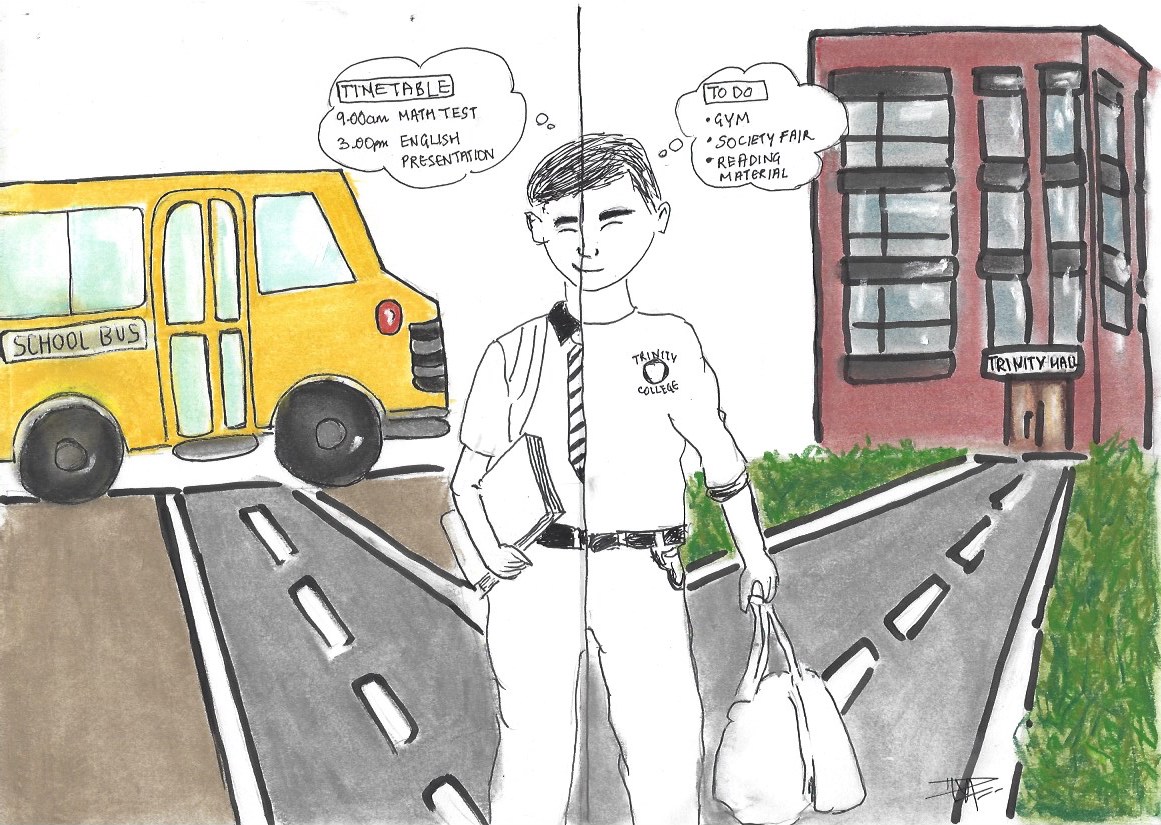Studying Irish for my undergraduate degree, one of the most common lines I get, aside from some variant of ‘you poor thing’ or ‘good on you, I wouldn’t be able for that,’ is the well meaning question: ‘Oh, do you want to be a teacher?’ Nothing could be further from the truth. Last summer, I decided to put some of my time to use preparing grind notes. Trawling back through my old Irish textbook, I was hit with the depressing reality, which many students understand: the Leaving Cert isn’t interested in teaching you Irish. Writing the essays, filled with seanfhocals that I would never use in a college essay, felt phony; reading the prose and poetry, in the knowledge that there actually is decent literature available in Irish, was soul-destroying. And, of course, the dreaded Sraith Pictiúr detailed the adventures of Irish speaking teenagers that would never happen, and it made me question my life choices. It’s no wonder that one of the teachers in my old secondary school said to me, “I wonder sometimes, is it all worth it?”
For me, the problem with the Irish language is symptomatic of the problem with the Irish education system in general. It places too much emphasis on content, rather than skills. In a bid to cover the curriculum for the Leaving Cert, most teachers lose the sense that they are teaching a subject which is, as I see it, about illumining an aspect of the human experience. English, Irish, history, and religion are all striving to answer the same fundamental question: what does it mean to be human? This is a nuanced question, but under the influence of the Leaving Cert, it becomes a mathematics problem with a ‘right’ and ‘wrong’ answer and a set approach. In my English class, instead of being taught the tools of how to analyse, analyses were given to me. In my religion class, I was coached on exactly how to write up our coursework, and in Irish, we didn’t even read the novel we were studying.
All this defies rigorous academic engagement. Academia thrives on building upon other people’s thoughts, and woe betide any student who hands in an essay without sources. Furthermore, the hallmark of third level education is the ability to think for oneself, to grapple with ideas, and to play around with them. I have a very clear memory of this: my first ever modern literature class. We were all huddled in a wide spacious room. It was 5 o’clock. Our lecturer came into the room and started to talk about the short story we had to read that week. People started typing away on their laptops. “Don’t take any notes,” he said. His most important priority, it seemed, was to get us to think for ourselves.
In the Leaving Cert, there is a set answer and a set syllabus. If you know about these topics and can spew out an essay on them you are good to go. College is a different beast. While there are course outlines and syllabi, they are just the beginning, and many lecturers will tell you that just doing the basics, attending lectures and doing core readings, is not enough to merit a first-class honours degree. Of course, some lecturers are aware that this is wishful thinking. “I know you don’t actually do the readings,” said one of my lecturers in first year. Perhaps this jaded attitude springs from the education system’s tendency to spoon feed students information, and its emphasis on rote learning.
Secondary education also leaves a lot to be desired in terms of mental health awareness. Yes, some schools have ‘life skills’ and SPHE, but I felt that they were inadequate in preparing me for what I would face in college. College can be a trying time, between making new friends, moving into accommodation, and balancing mental health. I found that nothing that I was taught in school with regard to my mental health was any benefit to me in my Senior Fresh year, when I first moved into university accommodation and when I was struggling with my mental health. Then, those classes felt inconsequential and, quite frankly, a waste of time.
One solution to these academic shortcomings could be to introduce an independent research aspect into more curriculums, thereby challenging students to think for themselves and get them used to the idea of academic research, which will become de rigueur in their lives as Trinity students. Secondly, schools should bring in mental health professionals to deliver classes on wellbeing and self-care. I would even go as far as to suggest that students be given homework in these classes.
At the end of the day, all of these issues stem from one major problem with the secondary level education system: teaching-to-test culture. This is an issue that is discussed with an almost ritual observance every year coming up to the Leaving Cert, and it is detrimental to students’ success in Trinity. Art, like life, is an experience, rather than an assessment, and the education system would do well to treat it as such.






